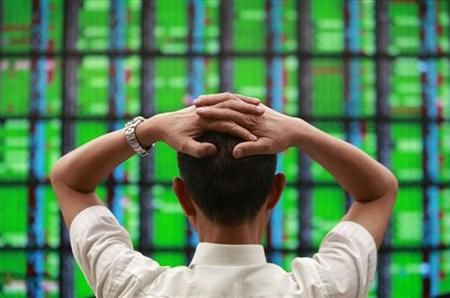Weekly Roundup: US Fiscal Cliff Concerns Weigh Down Asian Stocks

Most Asian markets fell in the week with the investor sentiment remaining negative following the concerns that the U.S. would face the fiscal cliff, consisting of tax rises and spending cuts, at the beginning of next year.
Hong Kong's Hang Seng Index slumped 1.1 percent and closed at 21159.01. China's Shanghai Composite Index fell 2.6 percent and closed at 2014.72.
Investors were guarded because of the concerns that U.S. President Barack Obama would face the colossal task of resolving the fiscal cliff.
“President Obama in the White House with the Republicans controlling the House of Representatives and Democrats controlling the Senate, was the worst possible outcome for the fiscal cliff negotiations. The suggestion was that both sides would feel they have a mandate to double down on their positions, with the result being a catastrophic stand-off that plunges the economy into recession,” Capital Economics said in a note.
On Thursday, the Communist Party of China appointed Xi Jinping as its new general secretary and also announced the names of the members of the new Politburo Standing Committee. The new leadership is expected to change the country’s policy direction and revive the economic growth.
Japan's Nikkei 225 Stock Average gained 3 percent and closed at 9024.16. South Korea's Kospi Index fell 2.3 percent and closed at 1860.83.
Japan faced a sudden development in political scene with Prime Minister Yoshihiko Noda dissolving the Diet Friday ahead of the general elections to be held Dec 16. Investor confidence rose amid the hope that the main opposition -- Liberal Democratic Party -- led by Shinzo Abe, the proponent of aggressive monetary easing measures, would win the next elections.
Meanwhile, Japan’s industrial output declined in September compared to that in the previous month, indicating that the weak global demand was continuing to have its impact on the country’s economy.
According to the data released Tuesday by the Ministry of Economy, Trade and Industry, Japan’s industrial production, which measures the change in the total inflation-adjusted value of output produced by manufacturers, mines, and utilities, fell 4.1 percent in September compared to that in the previous month while it declined 4.1 percent in August.
South Korea’s unemployment rate grew at a slower pace in October than expected, moderately raising the optimism that the economy of the country was on the path of recovery.
According to the data released Wednesday by the Korea National Statistical Office, the country’s unemployment rate, which measures the percentage of the total work force that is unemployed and actively seeking employment, rose 3 percent in October, down from 3.1 percent in September and below the analysts’ expectation of 3.1 percent.
India's BSE Sensex was down 2 percent and closed at 18309.37.
India’s wholesale price index rose at a slower rate in October than that in the previous month, showing signs of a gradual decline in price pressure to make room for monetary easing.
According to the data released Wednesday by the Ministry of Commerce and Industry, India’s WPI, which measures the change in the price of goods sold by wholesalers, rose 7.45 percent in October, down from a 7.81 percent increase in September and below the analysts’ expectation of 7.96 percent. The decreasing headline inflation should be good news because it could help the government invigorate growth without much concern about the rising prices.
Investors continued to worry about the condition in the euro zone with the persisting concerns that more time was needed for the European Central Bank to release the next tranche of bailout package for Greece, which is much needed to revive its economy.
Major losers: Shares of Tencent fell 7 percent. Shares of Tata Motors declined 5.56 percent and those of Wipro Ltd dropped 3 percent.
© Copyright IBTimes 2024. All rights reserved.





















